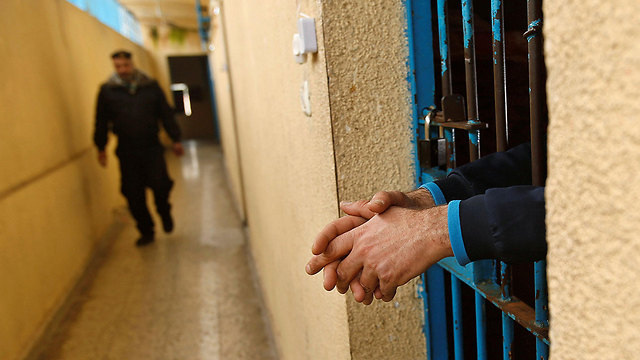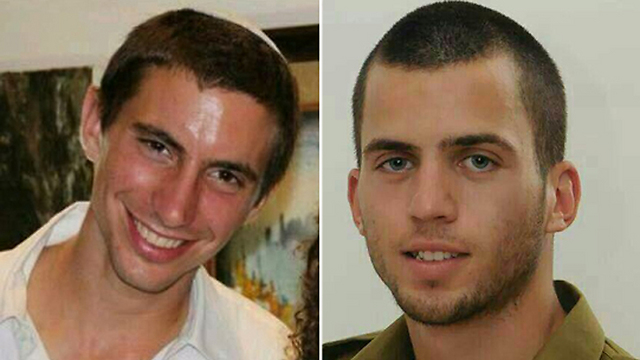A parole board recently refused to grant early release from prison to a Palestinian from Gaza who was sentenced for a number of security-related crimes, citing the fact that Hamas is still holding onto the bodies of Hadar Goldin and Oron Shaul, who were killed during Operation Protective Edge in 2014.
A gag order was placed on the prisoner’s identity, but he is said to be serving a three-year sentence for a list of offences, including establishing contact with foreign agents, training in an outlawed militia, weapons offences and affiliation with illegal groups—namely Hamas.
Among the reasons for the rejection, the parole board insisted that weight had to be given to the fact that the prisoner in question belongs to Hamas’s military wing, which has been holding onto Goldin and Shaul’s bodies since they fell in battle, and refuses to hand them back to Israel.
He joined the Al-Aqsa Martyrs Brigade and agreed with his brother to participate in riots. To that end, he crossed the border into Israel where he was arrested.
The parole board said that its decision was not guided by a desire to exert pressure on Hamas, but rather to maintain faith in the legal system.
“It is not the job of the parole board to produce levers to pressure Hamas for their (Shaul and Goldin’s) return, but the board believes that the early release of the prisoner who is affiliated with the Hamas terror organization could and would be harmful to the public’s confidence in the judicial system.”
Furthermore, the board went on to say that the onus rested on the prisoner to prove that he had repudiated the beliefs that resulted in his incarceration.
“The burden of proof is on the prisoner to show that he deserves to be released and that the release will not endanger public safety,” it was written in the board’s summary.
“When we are speaking about a security prisoner, this burden is seven times heavier and it is for the prisoner to prove that he has abandoned the ideology that caused him to carry out the crimes for which he was punished,” it continued.
“The parole board believes that a premature release of the prisoner would constitute a danger to public safety. The severity of the crimes point to the danger the prisoner poses to state security.”
Responding to the parole board’s conclusions, a human rights lawyer lamented the “wholesale” rejections of early release from prison, arguing that past precedents render release requests doomed from the outset.
“The parole boards dismiss release pleas by security prisoners wholesale and relies on the criteria set out by the law. But the court once accepted a decision which claimed that prison conditions for Hamas prisoners were worsened to put pressure on Hamas to release Gilad Shalit. According to this logic, no one should be released,” the lawyer said.

Archive photo
Photo: Reuters
מומלצים


















